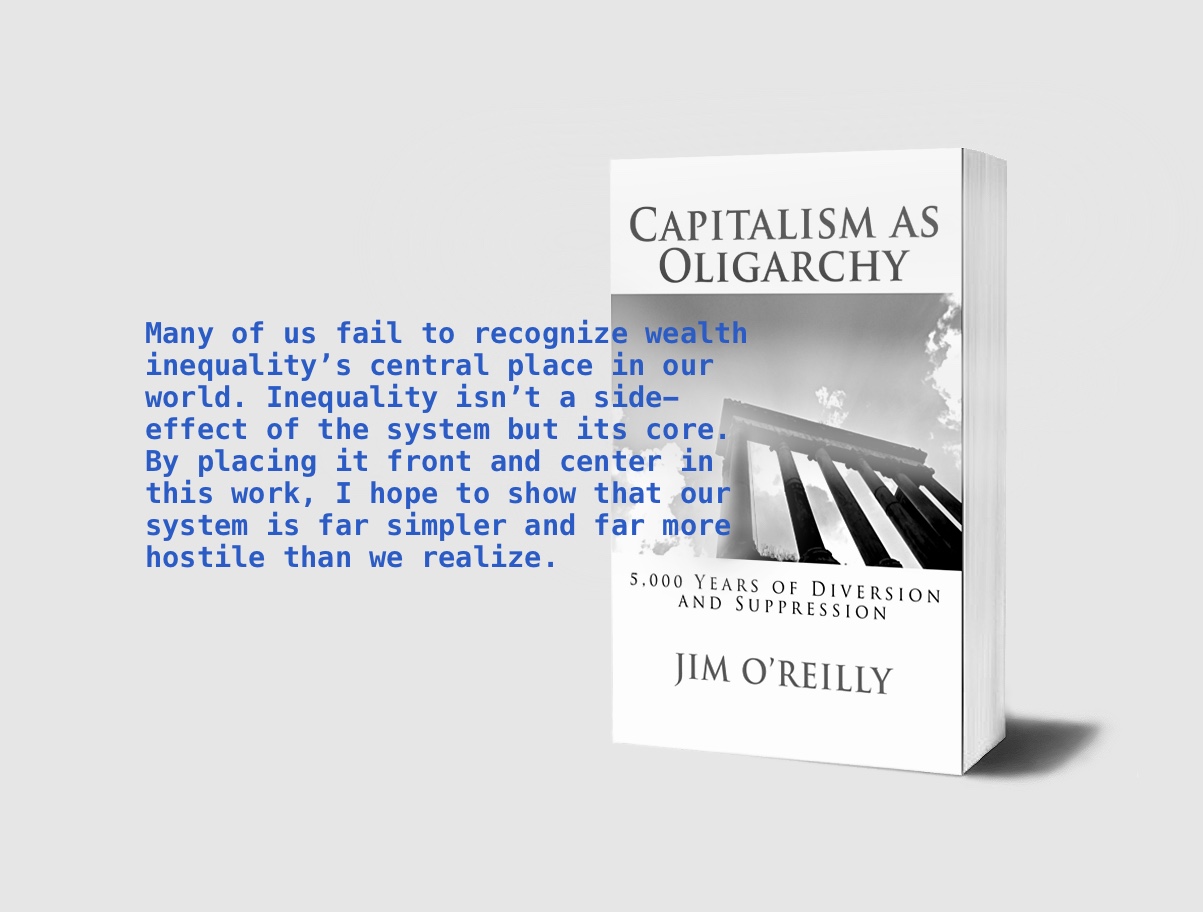The Tax Myth
The Deficit Myth, one of the great foundations of anti-population oligarchic ideology and the title of Stephanie Kelton’s new book, has been teetering of late and will hopefully soon collapse. MMT deserves much credit for this important achievement, but in this post I’d like to argue that the popular presentation of the ‘deficit myth’ over-emphasizes the desirability of deficits at the expense of the far more desirable taxation of the rich.
The take-away, I think, should be that progressives should demand balanced budgets almost all the time, not because of false concepts of debt, but because of the need to reduce and eventually eliminate the undemocratic power of unequal wealth.
As we know from both MMT and Kalecki’s profit equation (Profit = Capitalist Spending + Deficits), government deficits flow directly to profit.
This is a crucial bit of information because it directly confronts another oligarchic ideology we could call ‘The Tax Myth’. The tax myth argues there’s a tight economic and moral limit to how much the rich should be taxed. A key way of sustaining this myth is by ignoring the deficit-profit equality. While MMT shows this link to be true, it doesn’t publicly highlight it to anywhere near the same degree as it does the deficit myth. Thus the title of Kelton’s book. But with the deficit myth collapsing, it’s time for the Left to direct its attention to the tax myth.
Suppose as president you were sitting in a boardroom with the executive committee of the oligarchy. You point out there is unemployment, poverty, and unused resources in the country and you ask, as owners of the means of production, if they would be kind enough to bring them online promising they would incur no cost for doing so. Would it be reasonable for them to refuse and insist instead that not only should it be costless to them, but that they should receive compensation equal to 100% of whatever is spent? I think not but that is exactly what happens with deficit spending.
Let’s look at a simple example.
Assume annual capitalist profit (which includes interest, rent, dividends, and other such items) before any new government spending amounts to $5 trillion and the existing tax rate on it is 20%. After tax income to the class is thus $4 trillion. The government then decides to spend $3 trillion for social purposes. Before tax income for the capitalist class thus rises to $8t and if it isn’t taxed for this, its after tax income at a 20% tax rate would rise to $6.4t.
If we are to keep the after tax income of the capitalist class at the same $4t level it was before the government spending, then the tax rate would be increased to 50%.
Of course the oligarchy, citing the tax myth, will adamantly argue this is an outrageous ‘soaking of the rich’ and a gigantic unfair burden but how exactly is this so given that the after tax income for the class remains exactly where it was before? It will also argue that such tax rates would discourage investment but this also is bogus given that the greater income in the system will make investments far less risky.
It’s humorously counterintuitive that the main conclusion from the deficit myth is that we should demand balanced budgets!
(PS: As an aside, it’s helpful to note that the initial assumptions above already bring to bear the tax myth since the initial pre-tax $5t of capitalist income included pre-existing government spending of 20% which was then taxed away. Restated, pre-government spending capitalist income was $4t, government spending was $1t which flowed to pre-tax income and was then taxed away. A key take-away from the tax myth is therefore that the rich aren’t taxed at all!)


What about banks? Would they have to move to 100% reserves? Would we have to keep foreign investors out of the US? While still running a big trade deficit? It’s complicated.
There are of course many complexities but I don’t think they change the basic conclusion. Why would the banks need to move to 100% reserves? Although not necessarily a bad idea. All things being equal, the rich in the US would lose out in my tax proposal to the extent that the extra profit leaked overseas. But all things aren’t equal. 1) They would gain from similar government spending by foreign governments. 2) They could protect themselves thru diversification into foreign owned companies. This, I think, is the most important answer. It’s a global economy, profits will cross borders, if oligarchs want to maintain their after-tax income, then they will have to diversify globally. 3) To the extent they could not diversify & the foreign governments spent less than the US government, then the US could reasonably negotiate some way to balance things out. I don’t think we should let these complications get in the way of the basic idea though. We have plenty of economists who could work out the details.
To add, there already is a great deal of diversification even in the US stock market given the share of profits of major US companies coming from abroad.